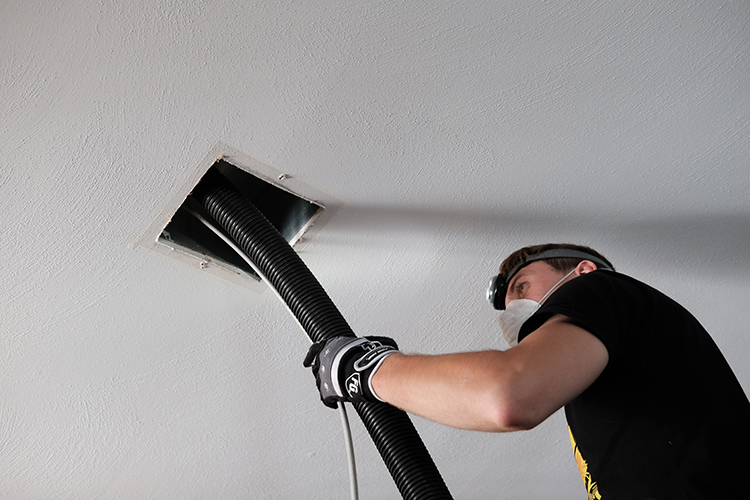Your air conditioning unit is there to keep you cool during hot hours. But it can wreak havoc on your home if not maintained. Sustained or recurring leaks from AC units can be costly and cause discomfort for occupants.
This article discusses the common issues that cause AC leaks and what to do about them. If you notice any of these problems, you need to take action as soon as possible.
Damaged Drain Pan
A damaged drain pan and accompanying blockage are usually the leading causes of air conditioning leaks. A broken drain pan is usually the first indication of an underlying problem. It’s your first line of defense against leaks, so it makes sense that it should be in good working order.
The drain pan is underneath your air conditioning unit. It’s part of your unit’s plumbing system, and it’s responsible for collecting excess water from your unit. When this part of the system is damaged, it can cause your AC unit to leak.
If the drain pan is damaged, it won’t collect wastewater from your unit efficiently. The result is wastewater that’s not absorbed correctly. This can cause corrosion, damage to the unit’s internal components, and ultimately a leak.
Clogged Condensate Line
The condensate line is a pipe that transfers water from your unit’s condenser to your exterior unit’s drain pan. If your condensate line is clogged, your condenser will be unable to cool down. This will result in a leak.
The condensate line is usually hidden behind your unit. It can often be clogged by a hair or a piece of debris without you even knowing. This can cause a clogged condensate line leading to a catastrophic leak.
Clogged Filter
The filter is located inside your unit’s condenser. It collects coarse particles and impurities from your air conditioner’s exhaust gases. It also has a tiny mesh that filters out contaminants from your unit’s air.
If the filter is clogged, it won’t be able to do its job. This can cause a leak. But it’s not easy to notice a clogged filter as it’s often tucked away inside your unit. So you can’t tell if it’s blocked unless you have a system inspection done.
Defective Pipes
Your air conditioning unit often contains pipes made out of aluminum. If any of these are damaged, they can cause a leak. Unfortunately, as with most AC unit issues, it’s usually not easy to notice a damaged pipe.
You need a professional to come and inspect your pipes and determine that they’re damaged. When you have a leaking pipe, you should expect to need a replacement pronto.
Water And Ice Build-Up
Water and ice build-up are common causes of air conditioning leaks. If you notice water and/or ice forming on the exterior of your unit, it means your unit is leaking. And it’s a sign that the unit is not working correctly overall.
Plus, your air conditioning unit should prevent rain and snow from getting in. The unit’s drainage system should prevent water from getting in. If it does, the unit should be able to remove the moisture and ice from the unit exterior if it’s in good working condition.
Compressor Issues
The compressor is the heart of your air conditioning unit. Damage can cause a leak, so your compressor should be inspected regularly. It’s also essential to maintain your unit by cleaning the dust out of its ducts.
Checklist For Repairs
It’s crucial to maintain your AC unit. A good habit is to check the unit’s pipes and check the unit’s operation frequently. Only through this you’ll be able to catch any problems with your air conditioner unit’s plumbing system. This includes the drain pan, filter, and compressor.
When a problem arises, follow these steps to reduce the chance of it causing a leak.
- Clean the condensate line and the filter regularly.
- Check the drain pan and the filter regularly.
- Inspect the pipes regularly.
- Call for service if your unit’s compressor stops working.
- Have the unit inspected regularly.
Conclusion
A leaking air conditioning unit is a costly problem. It can ruin carpets and furniture, damage flooring, and increase the chances of mold growth. To reduce the risk of this problem, maintain your air conditioner regularly.
It’s worth noting that AC units aren’t just for cooling. They can also provide heating, ventilation, and air conditioning (HVAC). In this case, the unit is responsible for cooling indoors and outdoors. You can ensure your air conditioning unit is working correctly and doesn’t leak by following these tips.
You can also do your best to prevent leaks by cleaning the condensate line, cleaning the filter, and maintaining your pipes. As well as ensuring that you have a professional install the AC unit in the first place. If a leak occurs, call a professional to repair it properly.

